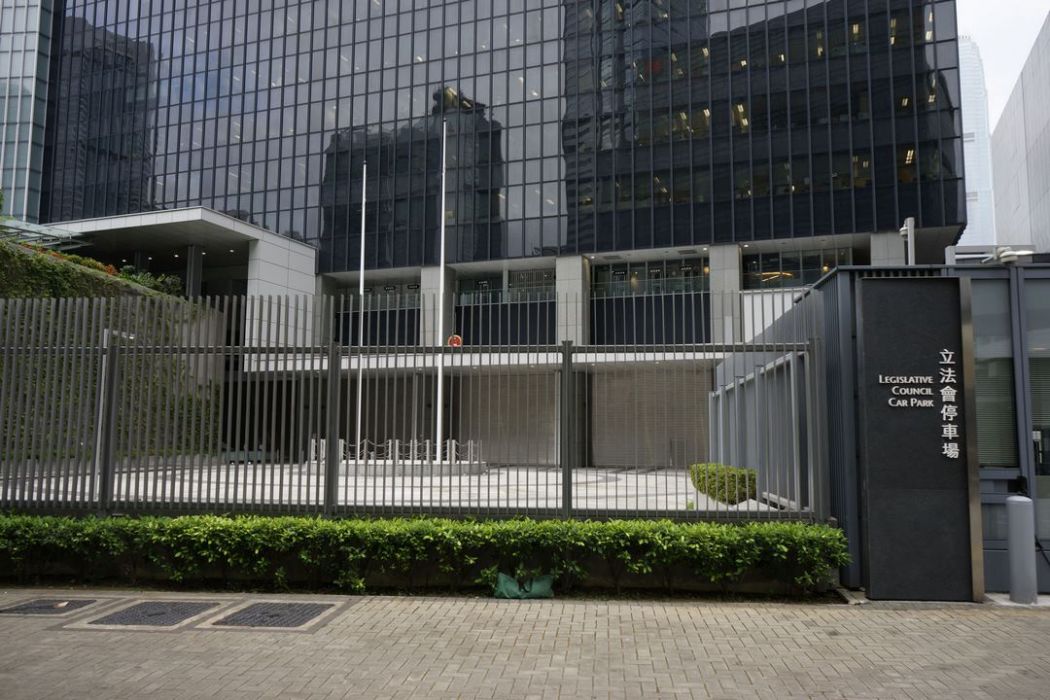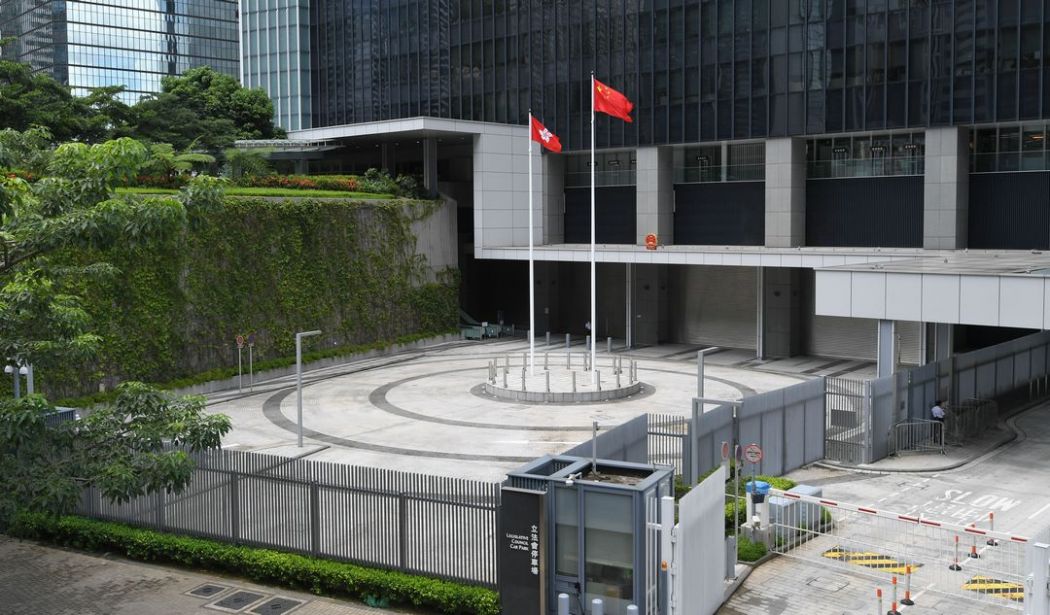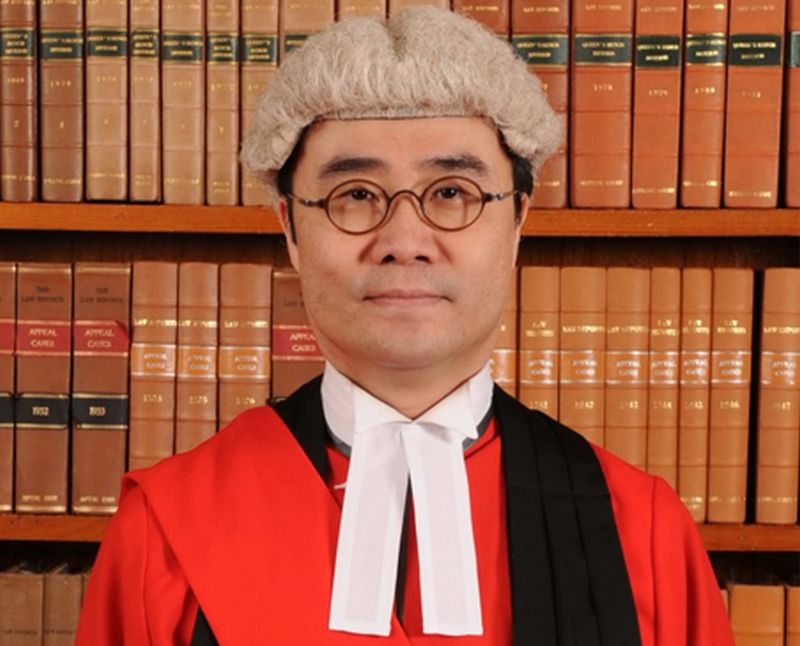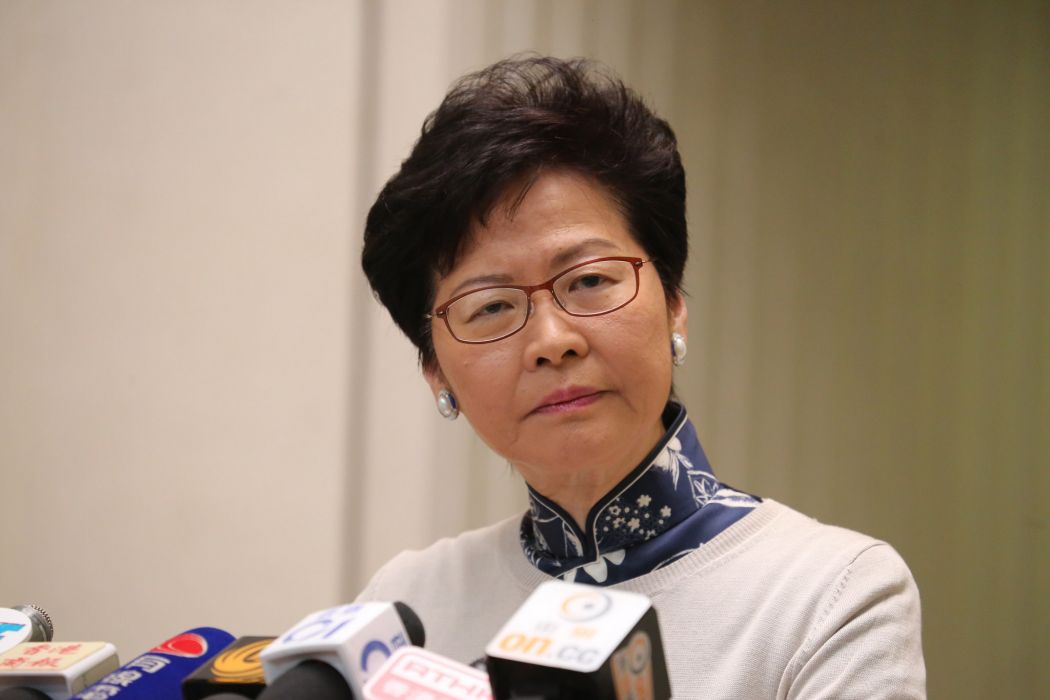The High Court has ruled that the Hong Kong government’s move to control access to the forecourt of the Central Government Offices – commonly known as “Civic Square” – was unconstitutional.
Press photographer Cheung Tak-wing launched a legal challenge in 2014 against the government’s policy of limiting public events at the square to 10am to 6:30pm on Sundays and public holidays only. Cheung argued that the move restricted his freedom of speech, assembly and right to participate in public affairs.

Judge Thomas Au ruled on Monday that the policy was unconstitutional as it failed the “proportionality” requirement, and in addition, contained an error of law.
Civic Square is a popular site for protests since the government opened its Admiralty offices in 2011. But the government added metal fencing around the area in September 2014, and later barred the public from entering it altogether. It was partially reopened to the public last December.
In the judicial review case, the government had argued that the policy was necessary because public events at Civic Square on weekdays and Saturdays would disrupt government operations.
The government further argued that the Civic Square was not a public space, and the government as a landowner had a right to exclude the public from it.
Au rejected both positions, saying that the policy amounted to a “blanket refusal” to allow people to enter the forecourt on weekdays and Saturdays, regardless of the scale and nature of potential events.
Au said this was disproportionate and contrary to established human rights law – which requires the government to justify restrictions on freedoms according to the specifics of each case.

“For example, it cannot be reasonably seen why the scheme would not even allow an applicant seeking only to demonstrate say by sitting-in alone at the Forecourt on a weekday or Saturday.” Au wrote. “It cannot seriously be suggested that this would affect in a material way the normal operation at the [Central Government Offices].”
Au further ruled that the government could not say it had an unlimited right to bar the public from government property.
“It is wrong in principle to formulate the Permission Scheme by starting off with the premise that, as a landowner, [the Director of Administration] could in principle exclude anyone from entering the place to exercise the rights of freedom of expression and assembly,” he wrote.
Au cited an earlier Court of Final Appeal judgment which stated that, in the context of freedom of speech and assembly, private property rights cannot trump fundamental rights. The government therefore could not say that protesters’ rights were irrelevant simply because they were protesting on private property, Au said.

Nevertheless, Au accepted that the government had the power to impose new restrictions and conditions on using the Civic Square, as long as they followed legal requirements.
‘Achieve a balance’
On Tuesday, Chief Executive Carrie Lam said the government respected the judgment and it will take time to carefully study it: “I have already asked the director of administration to revisit those guidelines and mechanism and guidelines to see whether there are ways… that we could change or relax some of the requirements,” she told reporters.

Lam said she decided to reopen the square when she took office last year, but a balance has to be achieved between the right to express opinion and the efficient and smooth operation of the government headquarters.
She also said people were only prosecuted for protests at the Civic Square because they broke the law, and the cases were unrelated to whether the square was open or whether there were fences.
Democrats welcome decision
Pro-democracy lawmakers said on Monday that the government’s past policy on Civic Square was overly restrictive, and called on it not to appeal the case.
“The policy on ‘reopening’ Civic Square was a joke: people have to apply, the opening hours are limited, and it is only open for one day per week… There are so many security guards and staff, it is preposterous to say they could not handle a few people and cars,” said lawmaker Tanya Chan.
Lawmaker Ray Chan added that the government should apologise to protesters who received legal sanctions for breaking the rules at Civic Square – namely the three Umbrella movement activists who were convicted of unlawful assembly for climbing the fence.
The Administration Wing, which is in charge of the management of Civic Square, said it was studying the judgment and will decide on next steps after seeking legal advice.
Additional reporting: Kris Cheng.
